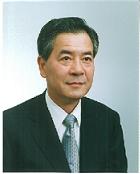January 16/2012
Japan Fair Trade Commission

I have the honor this year of marking the 10th anniversary of my appointment as Chairman of the Japan Fair Trade Commission (JFTC). Looking back over the past year, however, we have experienced many challenges, including the Great East Japan Earthquake, the appreciation of the yen, and the rise of emerging economies. It is clear that the Japanese economy faces a testing situation, both domestically and internationally. That makes all the more important the role of the JFTC in continuing to enforce the Antimonopoly Act and the Subcontract Act and promoting competition policy. Our efforts encourage fair and free competition, benefiting our economy and protecting the interests of consumers.
We believe that enforcement of the Antimonopoly Act is a vital and continued responsibility. I have often said that “there is no economic growth without sound competition”. In the midst of economic hardship, the JFTC will call on all of its expertise to clamp down on anticompetitive acts that violate the Antimonopoly Act. This work is essential to help boost the economy, increase employment, and protect consumer interests. Moreover, in the severe fiscal situation created by the unprecedented natural disaster on March 11, 2011 and other conditions, bid-rigging can never be permitted to hinder the effectiveness and efficiency of reconstruction and restoration work for the people of northeastern Japan. You may be aware that the amended Antimonopoly Act has been in effect since January 2010, expanding the types of practices subject to the surcharge system, extending the leniency program, and increasing the maximum jail term for cartel conduct. You may also know that, for merger regulations, the prior consultation system was abolished and a new system has been in place since July, 2011. The JFTC will enforce this legislation appropriately, so that we can swiftly deal price-fixing cartels that have such a big impact on the life of the Japanese people, bid-rigging including government-facilitated cases, and the exclusion of competitors in areas related to IT and intellectual property rights. The JFTC will also conduct appropriate reviews of mergers, to ensure that the interests of consumers and other users are not harmed.
A bill submitted to the 174th ordinary session of the Diet in March 2010 for amendments of the Antimonopoly Act has been tabled for further deliberations. I hope the bill will soon be taken up for deliberation at the 180th ordinary Diet session this year. On that matter, the JFTC will continue its efforts to facilitate deliberations.
We also have a mission of promoting fair trade practices. As the business environment deteriorates with the appreciation of the yen and other factors, the JFTC needs to deter and eliminate abuse of superior bargaining positions and violations of the Subcontract Act, which burden small and medium enterprises (SMEs). In November 2010, the JFTC published the “Guidelines Concerning the Abuse of Superior Bargaining Positions under the Antimonopoly Act,” considering that a certain type of superior bargaining position is subject to the surcharge payment orders under the 2009 revision of the Antimonopoly Act. In this respect, in 2011, we held lectures and consultations for the regulations on the abuse of superior bargaining positions and the Subcontract Act. Also last year, the JFTC published the “Report on Business Practices between Financial Institutions and Corporations (Follow-Up Survey, 2011)” in June, the “Report on Trade with Franchise Headquarters” in July, and the “Report on the Trade between Food Manufacturers and Wholesalers” in October. On the basis of this work, the JFTC will vigorously enforce laws and adopt strict preventive measures against the abuse of the superior bargaining positions and violations of the Subcontract Act.
As the relative economic status of emerging countries increases in the international community, economic ties among nations have strengthened, especially in East Asia, such as China or ASEAN. In this context, to deal with international cartels, the international convergence of competition laws, and more sophisticated business environments in developing countries, dialogues and cooperation with foreign competition authorities as well as increased technical assistance on competition laws for these emerging countries are becoming more critical. As part of our efforts in this area, I have served, since 2007, as Vice Chair of the International Competition Network (ICN), while our staff have been involved in the activities of all working groups. Moreover, since 2011, our executive at the secretariat has been Co-Chair of the Cartel Working Group. With this involvement, the JFTC is working to enhance its contribution to international activities. Also on the topic of East Asia, the East Asia Top Level Officials' Meeting on Competition Policy has been held annually since 2005 as a forum where the heads of each competition and competition-related authority come together to exchange opinions on recent activities, future issues, and other matters. Also last year, we offered technical assistance separately to Indonesia, Vietnam, and the Philippines. With these missions, the JFTC will step up its efforts to build ties and enhance cooperation with competition authorities overseas.
With the rising importance of competition policy and the need for the JFTC to accomplish its missions and remain committed to appropriate law enforcement, we need to provide the Japanese public with sincere explanations, to earn their understanding of competition policy, and to listen honestly to their voices. It was with this thought that the JFTC heard the views of each member of the Antimonopoly Policy Cooperation Committee, held lectures at junior high schools, high schools, and universities, and offered consumer seminars in 2011. It is also important to support litigation against violations of the Antimonopoly Act, to conduct PR activities to prevent violations, and to give consideration and undertake coordination with regard to regulatory reform. The JFTC remains committed to developing competitive environments.
The JFTC will continue to develop its expertise as the competition authority in Japan that enforces the laws in place, and will respond to the expectations of Japanese society. We appreciate your continued support and encouragement.
*Every announcement is tentative translation. Please refer to the original text written in Japanese.






